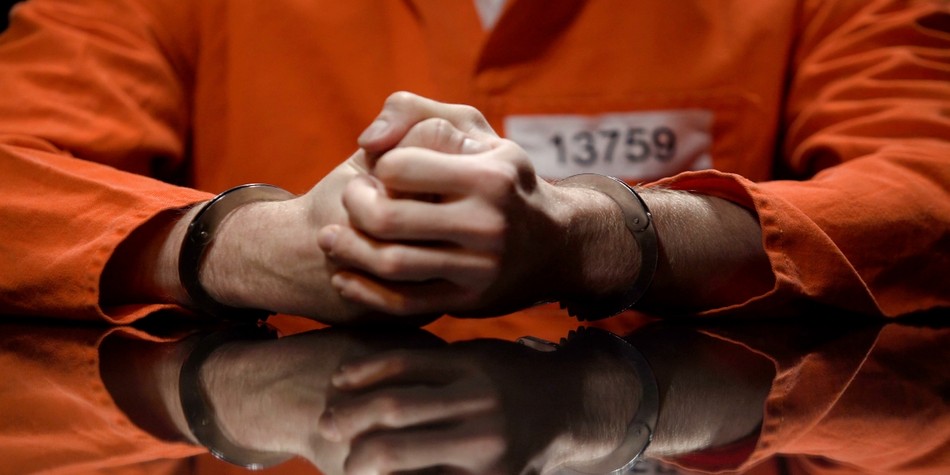Each spring, as we approach our Easter celebrations and focus on Jesus’ crucifixion, death, and resurrection, our attention is briefly drawn to a man named Barabbas. Scripture tells us that Barabbas was a robber (John 18:14), an insurrectionist, and a murderer (Mark 15:7). Yet despite his guilt and depravity, Barabbas is granted freedom from the death penalty and is released from prison, while an innocent man—Jesus—is sentenced to die in his place.
The implications of this horrifying injustice in history continue to reverberate through time. The story of Barabbas triggers a tidal wave of life-changing truth and perspective for each of us today.
Barabbas Quick Facts
- Barabbas was a well-known prisoner guilty of murder and insurrection against the Roman government.
- His name means "son of the father" in Aramaic.
- Pontius Pilate offered to release either Barabbas or Jesus, as part of a Passover tradition.
- The crowd chose to free Barabbas, calling for Jesus to be crucified instead.
- Barabbas symbolized physical resistance against Roman oppression, which appealed to the crowd.
Barabbas in the Bible
Let’s set the scene of the most earth-shattering event in human history.
Jesus has been betrayed (Matthew 26:14-16) and arrested (Matthew 26:47-56). His disciples have fled in fear, deserting the One they had followed for three years.
Jesus has been subjected to the cruel and angry judgment of the Jewish Sanhedrin, Pilate, Herod, and is now, once again, standing before Pilate. Even though he sees no fault in this Jewish prisoner, Pilate is stunned that Jesus refuses to defend himself.
The drama unfolds in Matthew 27:11-14:
Meanwhile, Jesus stood before the governor, and the governor asked him, “Are you the king of the Jews?” “You have said so,” Jesus replied. When he was accused by the chief priests and the elders, he gave no answer. Then Pilate asked him, “Don’t you hear the testimony they are bringing against you?” But Jesus made no reply, not even to a single charge—to the great amazement of the governor.
Finding no fault in Jesus, Pilate then turns to the Jewish crowd. According to Jewish custom, a prisoner can be released during the Passover Festival. Surely, they would choose to release this innocent man named Jesus.
We are now introduced to the man, Barabbas, in Matthew 27:15-18:
Now it was the governor’s custom at the festival to release a prisoner chosen by the crowd. At that time, they had a well-known prisoner whose name was Jesus Barabbas. So when the crowd had gathered, Pilate asked them, “Which one do you want me to release to you: Jesus Barabbas, or Jesus who is called the Messiah?” For he knew it was out of self-interest that they had handed Jesus over to him.
The tension is intense, and in Matthew 27:19-20, we see that even Pilate’s wife warns him away from convicting an innocent man:
While Pilate was sitting on the judge’s seat, his wife sent him this message: “Don’t have anything to do with that innocent man, for I have suffered a great deal today in a dream because of him.” But the chief priests and the elders persuaded the crowd to ask for Barabbas and to have Jesus executed.
Stunned and frustrated, Pilate attempts to reason with the angry Jewish crowd (Matthew 27:21-26):
“Which of the two do you want me to release to you?” asked the governor. “Barabbas,” they answered. “What shall I do, then, with Jesus who is called the Messiah?” Pilate asked. They all answered, “Crucify him!” “Why? What crime has he committed?” asked Pilate. But they shouted all the louder, “Crucify him!”
The crowd, goaded into a wild fury by the chief priests and elders, will not listen to reason, and Pilate symbolically washes his hands in resignation:
When Pilate saw that he was getting nowhere, but that instead an uproar was starting, he took water and washed his hands in front of the crowd. “I am innocent of this man’s blood,” he said. “It is your responsibility!” All the people answered, “His blood is on us and on our children!” Then he released Barabbas to them. But he had Jesus flogged, and handed him over to be crucified.
Barabbas is released and Jesus, the Son of God, is beaten and handed over for death by crucifixion.
What was Barabbas in Prison for?
Barabbas was in prison for rebellion and murder. Scripture gives the following insights into his life and character:
- A notorious prisoner (Matthew 27:16)
- A rebel, murderer, and insurrectionist (Mark 15:7)
- Guilty of breaking God’s law by taking the life of His image-bearer(s) (Genesis 9:6)
- Deserving of death (Luke 23:25, Acts 3:14)
Yet even with Barabbas’ depraved resume, the swelling crowd of those at the Jewish festival of Passover screamed for his release.
Why Did the People Choose Barabbas Over Jesus?
A week before Jesus’ arrest, the Jewish people poured into the streets of Jerusalem and shouted with joy over Jesus’ arrival. John 12:13 reads, They took palm branches and went out to meet him, shouting, “Hosanna!” “Blessed is he who comes in the name of the Lord!” “Blessed is the king of Israel!”
What changed in a matter of days? How did the Jewish people swing from joyful praise to furious condemnation?
In the article, “Who was Barabbas and Why Did the People Choose Him Over Jesus?” author Hope Bolinger writes:
“Scripture makes it clear that the religious leaders had kneaded their way through the crowds, convincing people to choose Barabbas over Jesus. Jesus’ experience of a “trial” that night (a kangaroo court, really) involved religious leaders trying to dodge their own rules, just to get him convicted. They brought in false witnesses who gave conflicting accounts and held his trial during the evening and early morning, certainly not protocol.
“In other words, they were trying everything in their power to get Jesus convicted through illegal means because Jesus had not truly committed a crime. The people, swayed by the religious leaders, end up choosing Barabbas.”
God used the religious elites of the day to accomplish His purposes. What men did in anger and selfishness, God used to shower us with the gift of grace—and to offer salvation to a lost and broken world.
What Happened to Barabbas After Jesus’ Death?
As we study the story of Barabbas, our hearts cry out in horror over the injustice of a guilty man set free, and an innocent man sentenced to death. How can this be? Did Barabbas take advantage of his chance at new life? Did he possibly understand the significance of his rescue?
Scripture doesn’t provide an answer to these questions. Barabbas appears on the scene for a short time—the man who deserved death but received a pardon for his crimes. But his mention—by name—in each of the four Gospels has significance for every image-bearer of the Most High God.
Why? Because as we turn our gaze on the sin of Barabbas, we see ourselves. Like Barabbas, our sin separates us from God (Romans 3:23). Like Barabbas, the penalty for our sins against God is judgment, condemnation, and eternal separation from our Creator (Romans 6:23).
Like Barabbas, we are on death row, waiting, hoping for someone to rescue us.
Enter Jesus, Son of the Living God. Jesus, the only one worthy to be the perfect substitute, and to take our punishment. Jesus, the one who laid down His life for us—even as we lay crippled in our sin, guilt, and shame (Romans 5:8).
Like Barabbas, we owe our lives to the perfect, Holy, Sacrificial Lamb—Jesus, the Christ.
Will we take advantage of our chance at new life? Do we understand the significance of our rescue?
May we respond in faith to the saving work of Christ on the Cross. This spring, as we rejoice in the resurrection and the good news of redemption in Christ Jesus, may we remember the story of Barabbas with humility—and with awe over the substitutionary death of the One Who offers us the gift of eternity in His presence.
So if the Son sets you free, you will be free indeed (John 8:36).
Further Reading:
Who was Barabbas and Why Did the People Choose Him over Jesus?
Why Did the Crowd Turn on Jesus and Yell "Crucify Him"?
Barabbas Meaning in the Bible - New Testament Greek Lexicon
Photo Credit: Motortion/Getty Images

You’ll find Leigh Ann on an adventure with her sweetheart of 39 years, getting silly with her grands, or daydreaming story plots on the front porch.
Connect on LeighAThomas.com.
This article is part of our People of Christianity catalog that features the stories, meaning, and significance of well-known people from the Bible and history. Here are some of the most popular articles for knowing important figures in Christianity:
How Did the Apostle Paul Die?
Who are the Nicolaitans in Revelation?
Who Was Deborah in the Bible?
Who Was Moses in the Bible?
King Solomon's Story in the Bible
Who Was Lot's Wife in the Bible?
Who Was Jezebel in the Bible?
Who Was the Prodigal Son?




